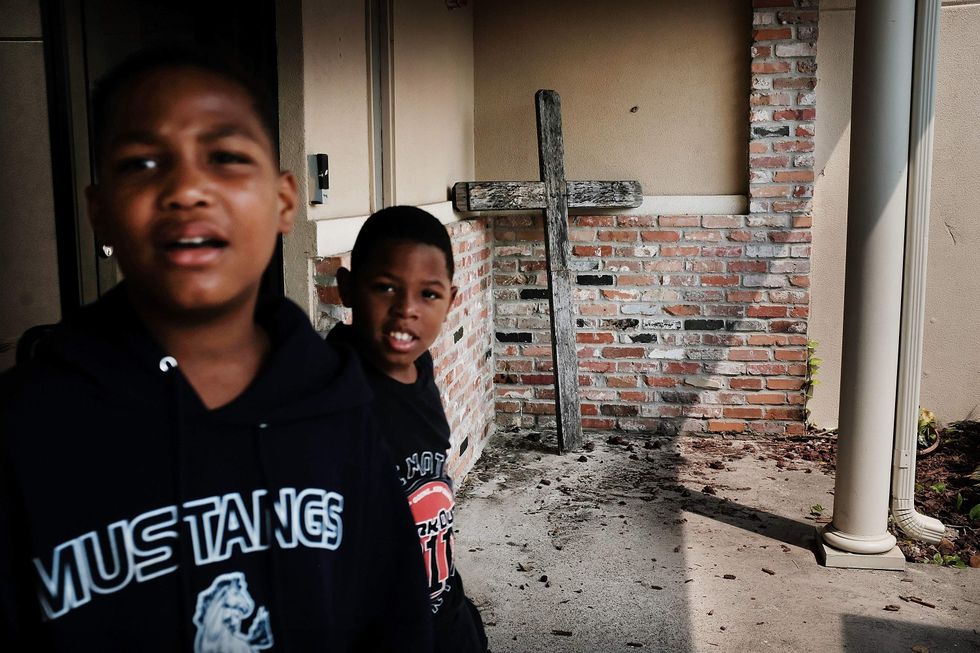
Three Texas churches are suing FEMA because they have been denied aid on the basis that they are religious organizations. (Spencer Platt/Getty Images)

In times of natural disaster in the United States, Christian churches are often on the front lines of relief efforts. They give money, they open their doors, they volunteer, serve and rebuild.
Despite these important contributions, churches are blocked from receiving federal disaster relief funds because their primary function is religious. Other non-profit organizations can get FEMA funds, but not churches.
In the devastating aftermath of Hurricane Harvey, three churches in Texas are fighting against the prohibition on giving religious organizations federal aid by suing FEMA.
The three churches, Harvest Family Church, Hi-Way Tabernacle, and Rockport First Assembly of God, don't believe it's fair that they are excluded from aid when they have experienced the same very real damage as everyone else in the area.
The lawsuit is being filed in Houston federal court by a non-profit public interest firm called Becket.
"FEMA has previously praised churches and religious ministries and the valuable shelter and aid they provide to disaster-stricken communities, and regularly uses houses of worship to set up relief centers," Becket said in a statement. "In fact, just as it did after Hurricanes Rita and Ike, FEMA and local government agencies are currently using Hi-Way Tabernacle to shelter dozens of evacuees, distribute meals, and provide medical care. Yet Hi-Way is not eligible for relief for the three-foot flood it suffered in its sanctuary, simply because it primarily uses its building for religious purposes."
This isn't the first time the issue of federal aid to churches has come up after a natural disaster. After Hurricane Katrina destroyed New Orleans in 2005 and Hurricane Sandy devastated the east coast in 2012, the same debate was raised after FEMA denied funds to religious organizations.
It's all about the constitutional principle of "separation of church and state," an idea that, while it is not explicitly mentioned in the Constitution, is widely accepted to be implicit in the intent of its authors.
The question that must be answered here is whether that separation was meant to apply to this particular type of situation. The separation of church and state was meant to prevent government from establishing an official religion, thereby marginalizing or oppressing differing denominations or faiths, which is quite a different concern than that of giving relief funds to religious organizations that happen to be victims of a disaster. Perhaps churches can be rebuilt with federal money, and that won't result in the full merger of the government and the Christian faith that the Founding Fathers sought to protect citizens from.
A U.S. Supreme Court case from June, Trinity Lutheran Church of Columbia Inc v. Comer, ruled that state governments must sometimes provide aid to religious organizations, despite apparent constitutional prohibitions of such aid. These three Texas churches are arguing that the same legal standard that applies to state governments should also apply to the federal government.
We'll see how this lawsuit plays out in court. For reference, the case is Harvest Family Church et al v Federal Emergency Management Agency et al, U.S, District Court, Southern District of Texas, No. 17-02662.
Aaron Colen
Aaron is a former staff writer for TheBlaze. He resides in Denton, Texas, and is a graduate of the University of Oklahoma where he earned his Bachelor of Arts in journalism and a Master of Education in adult and higher education.